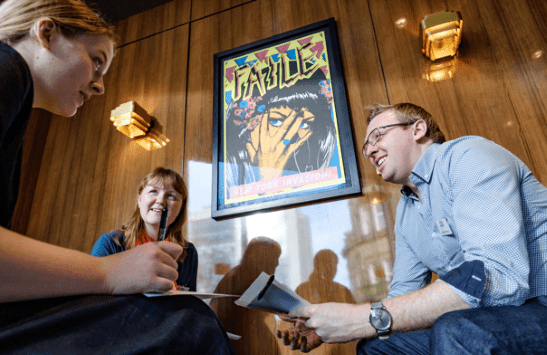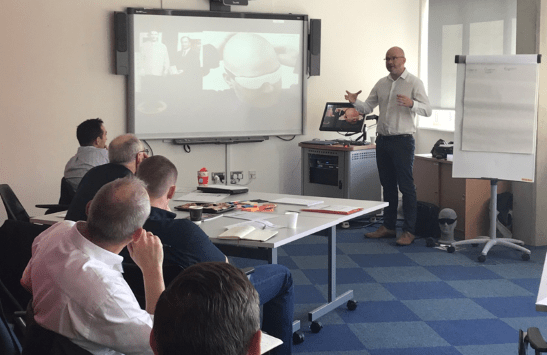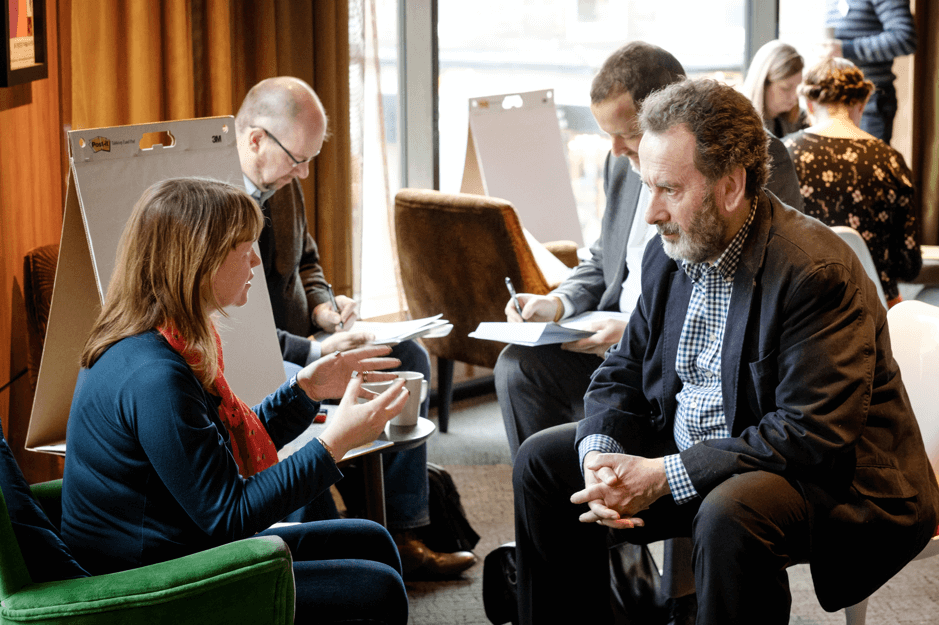Build the confidence, tools and mindset to have the conversations that matter most.
Our Mastering Challenge and DIfficult Conversations programme equips business leaders, managers and team members with the skills to lead challenging conversations in a professional manner—whether it’s a one-on-one meeting, a team session, or a tough talk with a stakeholder.
We help you move from avoiding difficult moments to approaching them with clarity and calm. You’ll learn how to listen actively, speak with purpose, and create mutual understanding, including in emotionally charged or high-stakes situations.
Why Challenge and Difficult Conversations Matter
Difficult workplace conversations are a common occurrence—yet they’re also the first place where poor performance, low employee engagement and miscommunication take root.
Whether you’re giving feedback, addressing a difficult issue, or having a tricky conversation about past experiences or different opinions, how you handle it makes all the difference.
With the right approach, even a hard conversation becomes a great way to build trust, strengthen relationships and spark positive change.
What You’ll Learn
- How to approach different types of conversations, from performance issues to tough talks with peers
- How to find common ground when you and the other person have a different perspective or point of view
- Strategies to avoid first mistakes—like assuming a person’s intentions or minimising their feelings
- How to recognise and manage your own emotional response
- The structure of effective difficult conversations—including the feelings conversation, identity conversation and third story
- Ways to lead constructive conversations that get to the root of the problem without blame
- How to listen for a person’s perspective while staying clear about your own
- How to spot when a conversation is going off course and reset it with purpose
What’s Included
- Practical frameworks for planning your next difficult conversation, from start to end goal
- Conversation planning templates and action plans
- Live peer practice and feedback (optional)
- Self-assessment of your current approach to difficult situations
- Techniques for handling hurt feelings, high emotion and tricky dynamics
Ideal For:
- Business leaders and people managers
- Anyone who wants to turn difficult talks into productive conversations
- Cross-functional teams working through difficult discussions
- Project leads managing stakeholder tension or different stories
Sample Topics Covered
- How to have honest conversations in a professional, respectful way
- Approaching a tough conversation about poor performance or low engagement
- Preparing for a scary conversation with a team member
- Exploring different perspectives in conflict without losing sight of your own perspective
- Managing body language and tone when emotions run high
- Reopening lines of communication after a difficult discussion
Outcomes You Can Expect
- A practical plan for your next difficult conversation
- Tools to turn hard conversations into useful, productive ones
- Higher emotional intelligence and stronger communication habits
- Confidence to speak up with good intentions—even in difficult situations
- A more resilient, open team culture where honest conversations are the norm
Delivery Options
This is a one-day programme, delivered in person or online, and tailored to your organisation’s context. It includes:
- Pre-session self-assessment
- Customisable scenarios from your own workplace
- Real-time practice and feedback
- Templates, resources and action items to use straight away
Get Started
If you want your team to handle difficult moments with more skill, clarity and confidence, we’re ready to help.
Contact us to book or find out more.
This highly interactive and robustly researched 1-day programme provides you with new insights, awareness and strategies for challenging others and when you are challenged yourself.
It is delivered live online for remote teams of between 8 and 25 people.
Additional Information
Constructive challenge is positive. It can lead to innovation, improved business and individual performance and more productive working relationships.
At work, there are inevitably times when we feel we need to challenge someone or something. There are also times when others may challenge us.
Understanding the nature of challenge and how to give and receive it responsibly and positively are essential skills for any leader or technical specialist.
Example Agenda
Introduction
- Understanding challenge
- The differences between challenge, confrontation and conflict
Challenge and organisational culture
- Key success factors
- Different ideas and perspectives and levels of support
- Identifying ‘live’ challenges
- Learning strategies to overcome potential barriers
Power and influence
- Different sources of positive personal power
- The role of influencing in challenge
How things can escalate
- Levels of conflict
- Understanding the escalation process and how to prevent it
Emotional intelligence
- The role of emotional intelligence in managing challenge effectively
- Key tools and techniques for self-management when challenging or being challenged
- Three degrees of bravery
Working with different perspectives
- Understanding needs and concerns
- Stakeholder mapping



